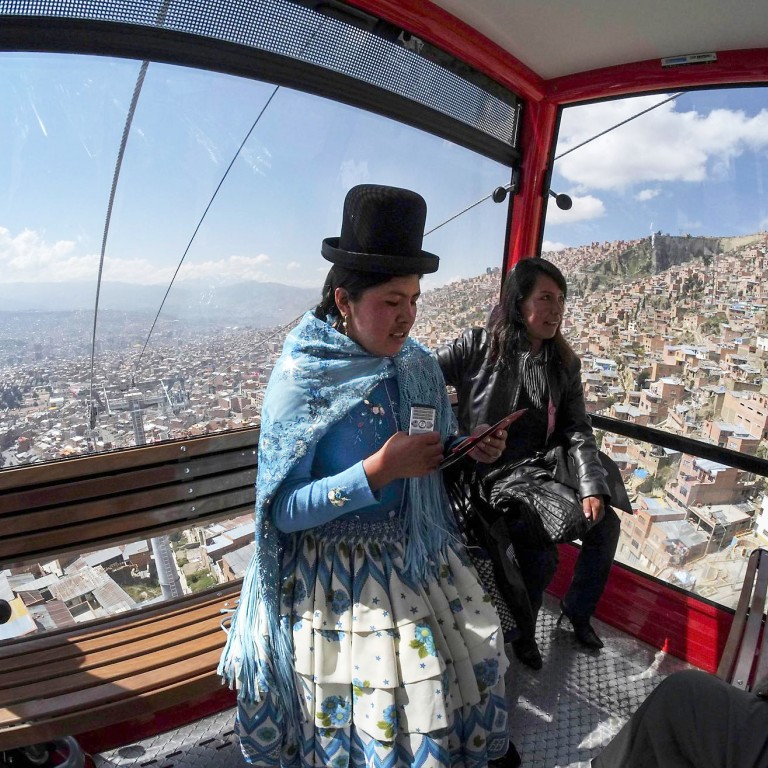
New cable car cuts journey time by half for commuters in La Paz, Bolivia
System aims to cut in half interminable journeys to and from La Paz
Through its tinted windows, the red cabin affords passengers a spectacular view of the glacier-capped Andes mountains as it glides serenely out of Bolivia's administrative capital, La Paz.
It climbs almost 500 metres up to the cliff-edge city of El Alto, the world's highest major metropolis at an elevation of 4,150 metres.

The region's new US$234 million cable-car system, which whisks passengers between sleek modern terminals in controlled silence, was given its first public outing this week.
When all three lines are running they will be able to transport 18,000 passengers an hour over nearly 11 kilometres, making it the longest urban cable-car system in the world. It's an innovation many Bolivians hope will turn their uncomfortable, seemingly interminable commute into a quick and modern ride.
Mariela Choque, 20, is one of tens of thousands who commute from El Alto down to La Paz every day. To arrive at her job in a La Paz cafe by 7am, she must wake well before dawn.
It is only 10 kilometres as the crow flies, but the winding traffic-clogged trip down the mountainside takes more than an hour.
It's worse in the evening, when there are often not enough of the little white minivans, which serve as the major form of mass transport in La Paz and El Alto, to handle the hordes of commuters.
"Everyone is fighting to get on a bus," she says. "It makes people desperate." Now, however, she will be able to hop on a cable car at the very edge of the El Alto cliff and zip down to La Paz in minutes, cutting nearly 30 minutes from her trip each way.
"This is a great option for those of us who live in El Alto. The trip will be much faster, more efficient and less exhausting."
La Paz's mountainous and unstable terrain presents challenges to any kind of construction, but Javier Telleria, general manager of Doppelmayr, the Austrian company building the system for the government of president Evo Morales, said cable cars were a natural fit.
"Ninety-nine per cent of our cable cars are built in high mountainous areas with large slopes, landslide and glacial areas that are equal to or more complex than La Paz," he said.
The Mi Teleferico (My Cable Car) system, which runs on electricity, may also decrease air pollution by lowering the number of cars on the road.
The cable car will fully open to the public next month. But one big question remains - how much will it cost?
Government sources suggest it will be competitive with ground transport. A bus currently costs 2.50 bolivianos (US$0.37) from El Alto to the centre of La Paz. Choque said anything up to 3.50 bolivianos would be reasonable.
